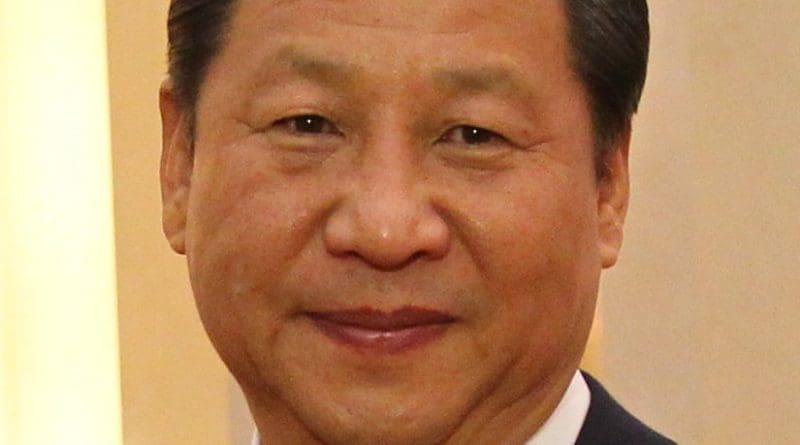Concern Over British Red Carpet For China’s President Xi – OpEd
A ‘new golden era’ between ‘new global partners’ with the UK wanting to be China’s ‘best friend in the West’ – these were just a few of the headlines surrounding the visit of China’s President Xi to the UK in October. It was little wonder that many in Washington and Brussels raised eyebrows at the extravagant welcome for China’s top political ruler.
In contrast to the cool reception he received in Washington in September, London pulled out all the stops for the Xi visit. There was little sign of the EU in evidence although the president made clear to David Cameron that China wanted Britain to stay in the EU. A Brexit just might give ideas to pesky Chinese provinces.
When he visited Brussels in May 2015, President Xi was offered an early supper by President Tusk in the Stalinist Justus Lipsius building. Eighteen months later Xi was received with much pomp and ceremony in the UK. He slept in Buckingham Palace, dined with the Queen and the Prime Minister, addressed both houses of parliament, was feted in the City of London and spent a day touring Manchester. In between dozens of deals were signed to bring Chinese investment to Britain.
The manufacturers of red carpets would have made a small fortune as a result of the Xi visit. Workers in UK steel factories were less enamoured, as thanks to Chinese surplus production, thousands of job losses were announced during Xi’s visit.
Mindful of the 18 months he spent in purdah after he met the Dalai Lama in 2012, David Cameron was reluctant to do or say anything that might offend the boss of the world’s second largest economy. Steve Hilton, Cameron’s former spin doctor, however, was angered at the British reluctance to raise human rights with what he termed ‘a rogue state.’ In contrast, Labour’s new leader, Jeremy Corbyn, said he had touched on China’s human rights record in his brief meeting with the Chinese president. Prince Charles, a friend of the Dalai Lama, ostentatiously stayed away from the state banquet. Several NGOs criticized the Prime Minister for putting ‘money over morality.’
But boosting trade was always going to be the top priority for Cameron and George Osborne. To the consternation of some, worried at possible security implications, China was allowed to buy a third of the shares for the new nuclear reactor at Hinckley Point which would use a mix of French and Chinese technology. They also bought into other critical infrastructure including airports, roads, railways and information technology.
The British have thus taken a much more open approach to Chinese investment than the US government which has banned Chinese investment in sensitive sectors. Washington was already annoyed that the UK was willing to join the new Asia Infrastructure Investment Bank (AIIB) without even giving Obama a heads up. Britain has also been more vocal than the US in supporting the renminbi becoming part of the IMF’s reserve currency (SDR).
Osborne, Cameron’s likely successor, is a big fan of China and the prime mover in the UK’s approach toward China, arguing that both sides can benefit significantly from closer ties especially in the economic field. He back-packed around China as a student and has encouraged his daughter to learn Mandarin. He has also been busy promoting London as a centre for the growing internationalization of the Chinese renminbi. The City was the first to issue RMB denoted bonds earlier this year and there are growing links between the stock markets in London and Shanghai.
During a cozy dinner at Chequers, the prime minister’s country house, he welcomed China’s more active global role, working with the UK in the Iran nuclear negotiations and taking part in anti-piracy operations in the Gulf of Aden. The prime minister hoped to increase cooperation with Beijing on sustainable development and climate change.
The fulsome welcome for President Xi demonstrates just how important the relationship with China is for the UK. Apart from raised eyebrows in Washington the visit also underlined the difficulty the EU has in agreeing a line on China. The UK got out of step in pushing for the opening of free trade negotiations with China before the Commission stressed that a first step had to be the successful conclusion of the current talks on an investment agreement.
The UK is not the only member state pursuing its own interests. Merkel will be visiting China at the end of October with her usual strong business focus. The central and east Europeans also have a formula known as 16+1 to press their own interests. As one EEAS official remarked it is easier herding cats than getting the 28 member states to agree on how to deal with China.

